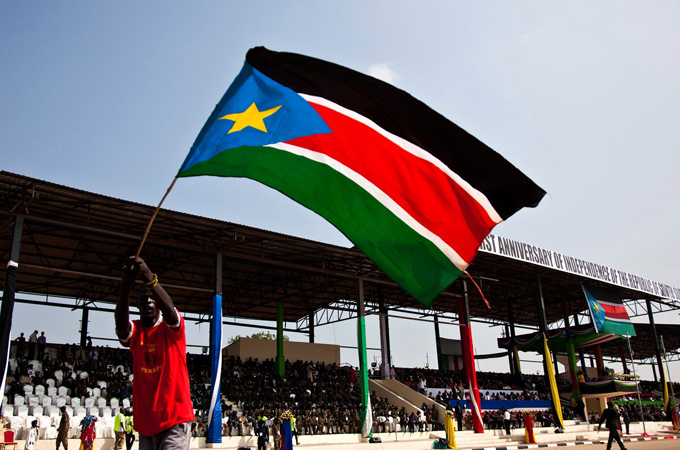A look back at the world’s youngest nation’s first 10 years, marred by a ruinous civil war.
It has been 10 years since South Sudan gained independence to become the world’s youngest nation.
Here is a look back at the country’s decade of independence, marred by a ruinous civil war that killed nearly 400,000 people and displaced millions.
2011: New nation
On July 9, South Sudan proclaims itself independent from Sudan following six years of autonomy and a decades-long struggle for statehood.
At midnight, raucous celebrations erupt as people take to the streets to cheer the beginning of a new era.
Salva Kiir is sworn in as president, with Riek Machar as his deputy. From different ethnic groups, the rivals also led the Sudan People’s Liberation Movement that spearheaded the push for independence.
South Sudan takes more than three-quarters of the oil reserves of undivided Sudan, while the Sudanese government in Khartoum retains control of all pipeline and export facilities.
Other thorny issues are the tracing of the new border and the status of disputed regions such as oil-rich Abyei.
2012: Oil clashes
The countries clash between March and May over rights to the oilfields around Heglig, a town just inside Sudan.
South Sudanese troops briefly occupy the area, which accounts for half of Sudan’s crude oil production.
Arguments erupt over pipeline transit costs and Sudan confiscates millions of barrels of South Sudan crude.
South Sudan halts its production in January for more than a year, accusing Khartoum of theft.
2013: Civil war
Kiir fires Machar and all government ministers, their deputies and several police brigadiers on July 23.
Machar later accuses him of “dictatorial” behaviour.
After a night of fighting in the capital, Juba, Kiir says on December 16 his forces had thwarted an attempted coup by Machar, who denies the claim.
Rival army units clash in Juba. The fighting spreads beyond the capital, fuelled by rivalries between Kiir’s Dinka group and Machar’s Nuer.
It sets off tit-for-tat massacres that turn into six years of war.
2016: Leader in exile
Machar and Kiir sign a peace accord in August 2015 that provides for Machar’s reappointment as vice president.
He returns to Juba and is sworn in on April 26, 2016.
But fighting between supporters of both leaders breaks out again in July. Machar goes into exile, accusing Kiir of trying to have him killed.
2018: Peace deal
Kiir and Machar meet for the first time in two years on June 20.
On September 12, they sign a new peace agreement to end a war that has killed more than 380,000 people and displaced roughly four million.
It paves the way for a power-sharing government which is eventually installed in March 2020, with Machar again vice president.
2020: Slow progress
However, the armed conflict continues.
The UN several times extends its peace mission, as well as an arms embargo.
In June 2020, Kiir and Machar agree on control of the country’s 10 states, the main remaining sticking point.
2021: UN warning
A UN report in April warns that the slow pace of implementing the peace accord risks a relapse into “large-scale conflict”.
On May 8, after a delay of more than a year, Kiir includes opposition MPs in a new parliament.
The final drafting of a constitution begins on May 25.
Other points of the peace accord, such as the formation of a unified national army, remain to be resolved.
